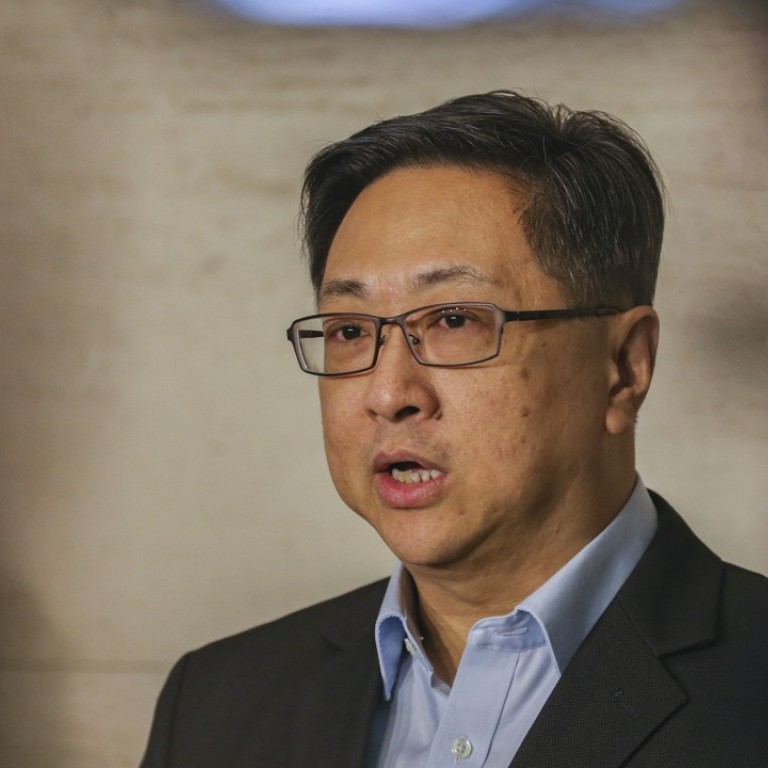
Police chief has taken the right step to address crisis of morale
Stephen Lo’s pledge to review guidelines on use of force during protests can ease concerns of frontline officers
Twice in less than 12 months, Police Commissioner Stephen Lo Wai-chung has written open letters to his 30,000-strong force to try to shore up morale after the jailing of officers for assaulting civilians during the 2014 Occupy protests. He has expressed sadness and support for the officers.
It is important that police morale be maintained. But it is also important that the conduct of which the officers were found guilty be condemned and that respect for the judgment of the courts be reaffirmed.
The gulf in sentiment reflects the frustration of frontline officers over guidelines for the use of force to maintain public order.
Thousands marched to police headquarters in Wan Chai at the weekend to show “support for police enforcement”. There was also an undercurrent of feeling that the police chief could have come out more forcibly in support of the officers who were convicted.
It is hard to see what more Lo could have done, short of criticising a court decision.
Dispensing justice without fear or favour, as the courts have been doing in cases involving both police and activists, is the right way to put the Occupy episode behind us.
Attacks on the credibility and impartiality of the judiciary following the cases do nothing for confidence in the legal system.
The focus should now be on addressing confusion and frustration among frontline officers and whether there is a need to review crowd-control tactics.
Commenting on the most recent case of retired superintendent Frankly Chu, who is appealing against his conviction for striking a passer-by at a protest, the 20,000-strong Junior Police Officers’ Association warns of a crisis of morale in its ranks.
It says Chu’s case reflects the “huge changes” in society wrought by political disputes in recent years and highlights the “inadequate protection” of police officers.
It is good, therefore, to hear the police chief announce a working group to review guidelines, procedures and training on the use of force.
It would be even better if he were more transparent about the composition of the group, its brief and time frame for reporting. There may never be another Occupy, but that is not to say police will not face further challenges from radical protest.

